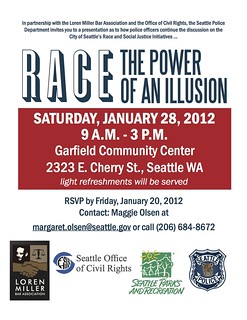> "Every person has a purpose...We are born into this world to do and act in a certain way. We actually have a cosmic and universal right to ' be ourselves' and to engage in certain work..." The Tao of Public Service
An Articulation of Injustice
On March 20, 2014, Arthur Delaney of the Huffington Post wrote an article about House Budget Committee Chairman Paul Ryan. In that article Delaney wrote:
Some inner city men suffer from a culture that does not value hard work, House Budget Committee Chairman Paul Ryan said Wednesday."We have got this tailspin of culture, in our inner cities in particular, of men not working and just generations of men not even thinking about working or learning the value and the culture of work," the Wisconsin Republican said on Bill Bennett's "Morning in America" radio show. "There is a real culture problem here that has to be dealt with."
Rep. Barbara Lee (D-Calif.) called Ryan's remark "deeply offensive."
"My colleague Congressman Ryan's comments about 'inner city' poverty are a thinly veiled racial attack and cannot be tolerated," Lee said in an email to reporters. "Let's be clear, when Mr. Ryan says 'inner city,' when he says 'culture,' these are simply code words for what he really means: 'black.'"
Rep. Lee may be accurate when she describes Mr. Ryan's phraseology as "code words" for "black" and as such racist. What is more concerning is the misconception that inner-city men have somehow voluntarily and/or "culturally" determined not to work. The absolute ignorance of these sentiments is as absurd as it is erroneous. Inner-city culture is not a culture of failure to work. Quite simply rather, inner-city culture is a culture of structural oppression.
The New Jim
Crow
In her book, The New Jim Crow, author Michelle Alexander
writes:
When the War on Drugs gained full steam in the mid-1980s, prison admission for African Americans skyrocketed, nearly quadrupling in three years, and then increasing steadily until it reached in 2000 a level more than twenty-six times the level in 1983. The number of drug admissions for Latinos was twenty-two times the number of 1983 admissions. Whites have been admitted to prison for drug offenses at increased rates as well -- the number of whites admitted for drug offenses in 2000 was eight times the number admitted in 1983 -- but their relative numbers are small compared to blacks' and Latinos'. Although the majority of illegal drug users and dealers nationwide are white, three-fourths of all people imprisoned for drug offenses have been black or Latino.
It is undisputed nearly everywhere in our nation that these prison sentences have the secondary effect of preventing minority men from being able to drive, obtain jobs, or even rent a place to call home. In her book she describes these secondary effects with the phrase "collateral consequences." She says:
... these civil penalties... often make it impossible for ex-offenders to integrate into the mainstream society and economy upon release. Far from collateral, these sanctions can be the most damaging and painful aspect of a criminal conviction... Unable to drive, get a job, find housing, or even qualify for public benefits, many ex-offenders lose their children, their dignity, and eventually their freedom--landing back in jail after failing to play by rules that seem hopelessly stacked against them. [i]
This is a culture of oppression so severe that Ms. Alexander has named it "The New Jim Crow." And like the Jim Crow of the past it is neither voluntary nor a true expression of the lives of minority men.
(Note: You can view every article as one long page if you sign up as an Advocate Member, or higher).






